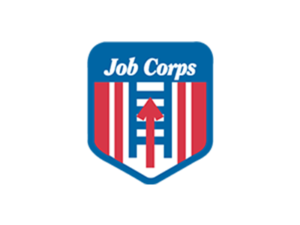
Recruiters, has this ever happened to you? You have a great initial conversation with a job applicant and set up an interview. The day arrives and the candidate is nowhere to be found, or worse you make it through the interview process, give a candidate an offer letter and they never show up for their first day of work. Unfortunately, you have just been ghosted.
You are not alone. According to a recent Monster survey, almost three-fourths of recruiters shared that a candidate has ghosted them, and on top of that, the same study revealed that almost half of applicants have admitted to ghosting employers.
How can you prevent this from happening? Keep reading to learn 3 reasons why job seekers withdraw from the recruitment process and what you can do to prevent them from leaving.
Reason #1: The job description was overwhelming.
A long list of required experience and technical skills might be the roadblock between you and a successful new hire. This is especially true for entry-level roles. According to the same Monster report, 40% of college graduates say that the most frustrating part of their job search is when employers require multiple years of experience for an entry-level role. If your list of requirements is too long, applicants may feel they don’t have a chance against other potential candidates. This can not only prevent talented young workers from applying to your positions but can also encourage them to concurrently interview for opportunities with job descriptions that focus on career growth and learning potential.
Solution: Write job descriptions that focus more on the soft skills needed to succeed in the role, such as a desire to learn or the ability to be a team player. Look for candidates who will jive with your company’s culture. You can also include what the training process will look like in your job descriptions. This will demonstrate to job seekers that you will be invested in their success and can help entice them to stick through the recruitment process.
Reason #2: The hiring process took too long.
The competition for talent is fierce. The complex nature of the hiring process can slow down your ability to provide your candidates with offer letters. Job seekers often cannot afford to wait several weeks to hear back from you. They are looking to get back to work and if you are interested in a candidate, then chances are other employers are interested in them as well. If another employer can push them through interviews and submit a job offer to the applicant more quickly than you can, you might find yourself returning to a pile of resumes once again.
Solution: To prevent your applicants from jumping ship before they even get to onboarding day, review your recruitment process with a fine-toothed comb. Find ways to make the hiring process as efficient and streamlined as possible. Also, make sure to take advantage of your initial point of contact with an applicant. Just a few minutes explaining how your recruitment process works and the expected timeline to hire will go a long way in helping to keep candidates interested.
Reason #3: The hiring process was frustrating.
Looking for a job is an extremely stressful experience. In fact, a recent SHRM study reported, “73% of candidates rate job searching as one of the most stress-inducing things in life – more stressful than public speaking, doing taxes, or even getting a root canal!” Why is this? The application process takes time. Job seekers are under pressure to support themselves and their families. An impersonal recruitment process that lacks transparency about the role can push your candidates away. Data from Monster shows that 31% of candidates ghosted their recruiters because they felt their interviewer was rude or misled them about the position. While you may be feeling the pressure to fill your open roles no matter the cost, interviews are a time to connect with applicants and provide an honest depiction of job expectations.
Solution: Communicate openly and honestly with your candidates. Job seekers will appreciate your transparency about expectations for the role, company culture, and the hiring process timeline. When you can, send updates to your applicants about next steps and when they can expect to hear your final decision. Providing a recruitment process roadmap can help ease job seekers’ stress while they interview with you and may help prevent them from jumping to another offer because they know that you are still interested in hiring them.
Hiring can be time-consuming, stressful, and frustrating, especially if your candidates ghost you during the process. By taking a little extra time to review your job descriptions, streamline the recruitment process, and keep in consistent contact with applicants, you can help increase your chances of successfully filling a role. Our Business Services Team can also support you with writing job descriptions, scheduling hiring events at your local PA CareerLink® office, reviewing local labor market information with you, and so much more! Click here to get started today!














